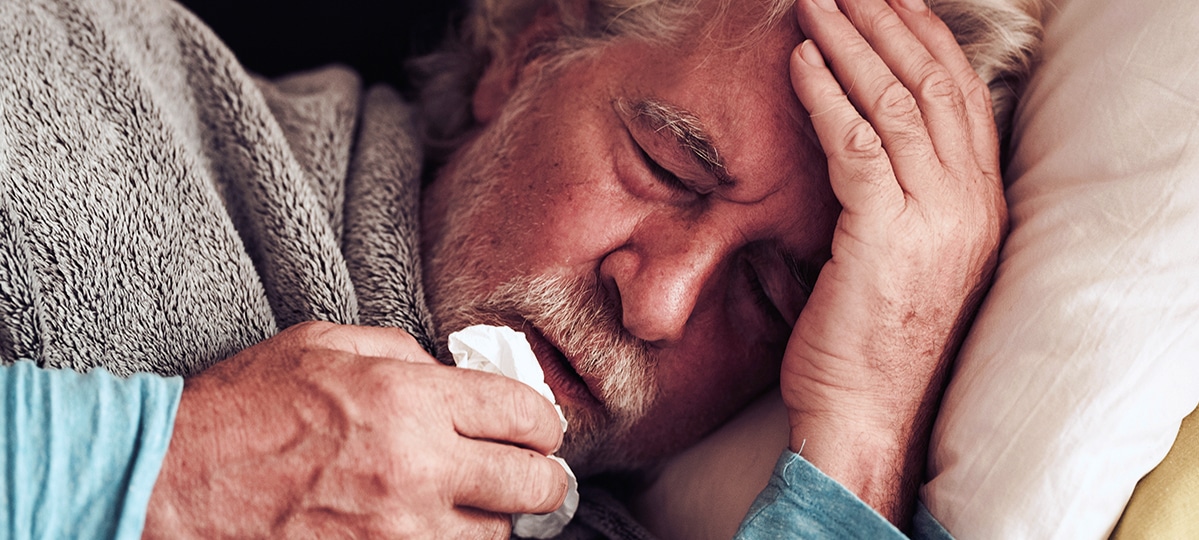Pneumonia is a respiratory infection that inflames the tiny air sacs in the lungs, known as alveoli. When these sacs become inflamed, they fill with fluid, leading to reduced oxygen flow in the affected areas of the lungs. While pneumonia can affect anyone, older adults, young children, and individuals with chronic health conditions are particularly vulnerable to severe complications.
For senior citizens, pneumonia presents heightened risks due to age-related changes in the body. It is more likely to result in hospitalization and, in some cases, fatal outcomes. Pneumonia remains a significant health concern in the United States, particularly among older adults. Recent data from the Centers for Disease Control and Prevention (CDC) indicate that pneumonia accounted for 41,108 deaths, with a mortality rate of 12.3 deaths per 100,000 population.
What Causes Pneumonia?
Pneumonia can result from various germs and irritants, including:
- Bacteria: The most common cause of pneumonia in adults.
- Viruses: Such as influenza or respiratory syncytial virus (RSV).
- Fungi: Particularly in individuals with compromised immune systems.
- Aspiration: When food, liquids, or saliva accidentally enter the windpipe, creating an environment for bacteria to grow.
Pneumonia spreads through inhalation of airborne droplets when an infected person coughs or sneezes. It can also develop following exposure to contaminated environments or prolonged contact with irritants such as toxic fumes.
Common Risk Factors for Pneumonia
Certain factors increase the likelihood of developing pneumonia:
- Age: Adults over 65 and children under two have weaker immune systems.
- Weakened Immunity: Conditions such as HIV, autoimmune diseases, or chemotherapy can lower resistance.
- Chronic Illnesses: Heart disease, diabetes, COPD, asthma, and cystic fibrosis heighten susceptibility.
- Neurological Disorders: Conditions like dementia, stroke, or Parkinson’s disease can interfere with swallowing, increasing aspiration risks.
- Smoking: Damages lung tissue, making it more prone to infection.
- Long-Term Chemical Exposure: Prolonged contact with fumes, pollutants, or secondhand smoke compromises lung health.
- Healthcare Settings: Extended stays in hospitals or care facilities expose individuals to drug-resistant bacteria.
Why Are Seniors More Susceptible to Pneumonia?
Aging naturally impacts the body in ways that increase vulnerability to infections:
- Respiratory Changes: The efficiency of clearing mucus and debris from airways declines with age, creating a breeding ground for infections.
- Weakened Immune System: Seniors experience reduced immune responses, making it harder to fight off illnesses.
- Chronic Conditions: Many older adults live with underlying health issues, such as diabetes or heart disease, that compound pneumonia risks.
Recognizing Pneumonia in Seniors
Symptoms of pneumonia can vary depending on the underlying cause but may include:
- Persistent cough producing green, yellow, or blood-tinged mucus
- Chest or abdominal pain, especially when coughing or breathing deeply
- Shortness of breath and chills
- Fatigue or general malaise
- Confusion or disorientation (a common symptom in seniors)
- Fever, excessive sweating, sore throat, or muscle aches
- Loss of appetite
Because these symptoms often resemble those of the flu, it’s crucial to seek medical attention promptly for proper diagnosis and treatment.
Diagnosing and Treating Pneumonia
Diagnosing pneumonia involves a combination of medical history, physical examination, and diagnostic tests. A healthcare provider may check for:
- Crackling lung sounds during breathing
- Elevated heart rate or abnormal oxygen levels
- Persistent cough, fever, or other symptoms
Diagnostic tools may include:
- Chest X-rays or CT scans: To visualize lung inflammation or fluid buildup.
- Blood Tests: To identify infection.
- Sputum Culture: To pinpoint the specific organism causing the illness.
- Pulse Oximetry: To measure oxygen levels in the blood.
Treatment typically depends on the cause:
- Bacterial Pneumonia: Treated with antibiotics.
- Viral Pneumonia: Managed with antiviral medications and symptom relief.
- Fungal Pneumonia: Requires antifungal drugs.
In addition to medication, rest, hydration, and breathing exercises are vital for recovery. Severe cases may require hospitalization for oxygen therapy or intravenous treatment.
Preventing Pneumonia in Seniors
Prevention is the best defense against pneumonia, particularly for older adults. Key strategies include:
- Vaccination
- The pneumococcal vaccine protects against common bacterial strains.
- Annual flu shots reduce the risk of viral pneumonia.
- Quit Smoking
- Avoiding tobacco improves lung health and resilience.
- Hygiene Practices
- Regular handwashing and disinfecting shared surfaces can reduce germ exposure.
- Healthy Lifestyle
- Staying active, eating a balanced diet, staying hydrated, and getting adequate sleep strengthen the immune system.
Caring for Seniors with Pneumonia
Providing care for a senior with pneumonia requires vigilance and compassion. Family members or caregivers should:
- Encourage rest and ensure they take prescribed medications on schedule.
- Monitor for any changes in symptoms or overall health.
- Promote fluid intake to prevent dehydration.
- Seek medical advice if symptoms worsen or new issues arise.
Professional caregivers can be invaluable, offering consistent support and expertise. They can help manage medications, provide companionship, and ensure the senior adheres to their recovery plan.
By understanding the causes, risk factors, and preventive measures for pneumonia, caregivers and loved ones can better protect seniors from this serious condition. Proactive care and attention can make all the difference in keeping older adults healthy and resilient.




